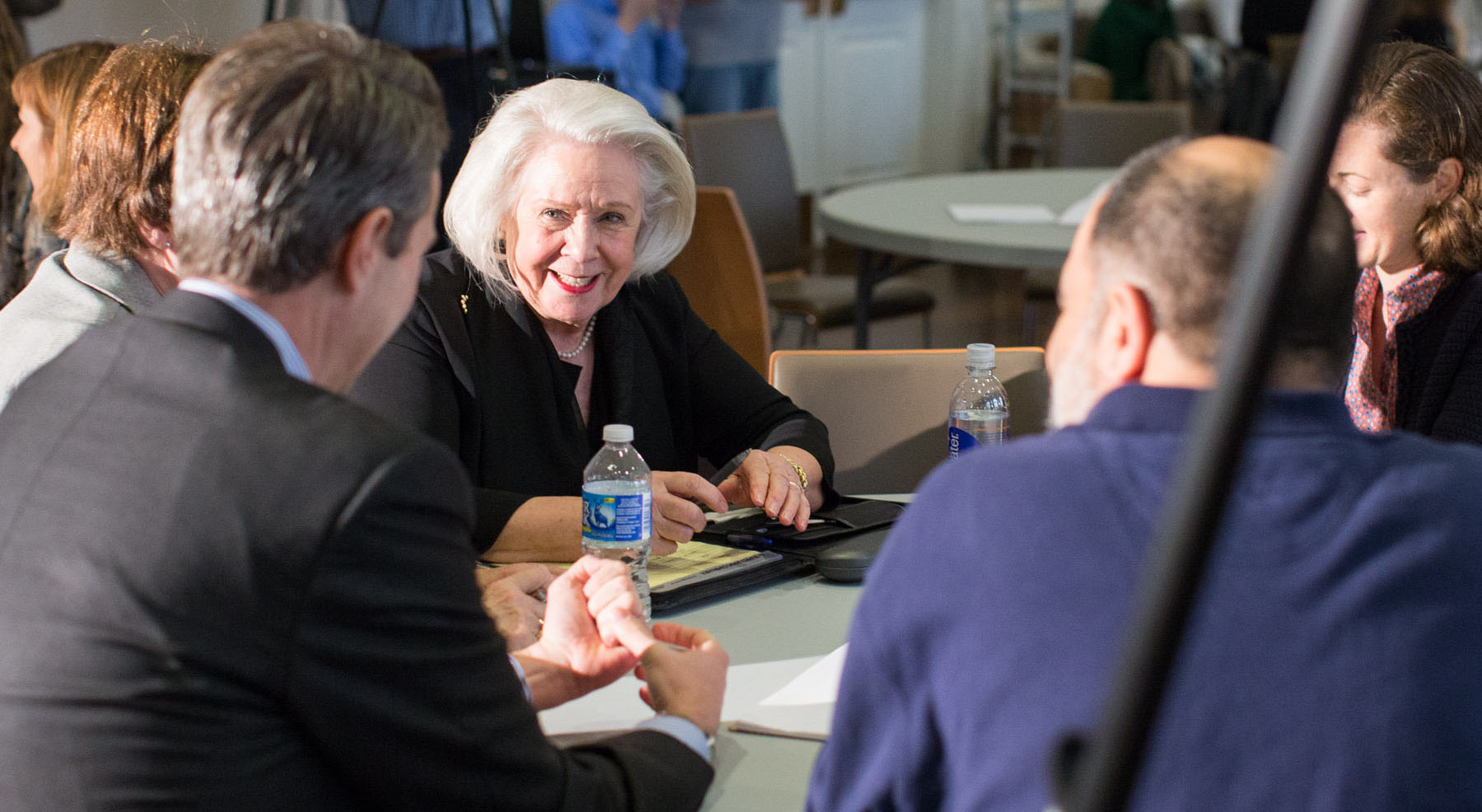A roomful of University of Virginia community members offered feedback Monday on ways to recruit, retain and develop University faculty.
The meeting drew about 70 participants, including professors from across Grounds, to the Newcomb Hall Ballroom to discuss a range of faculty issues, including peer review, pay and benefits, how to make the best use of search committees, and ways to support faculty teaching and research.
The forum was hosted by the Faculty Recruitment, Retention and Development Working Group, one of seven groups meeting as part of the strategic planning process launched earlier this academic year by President Teresa A. Sullivan. The meeting Monday kicked off a week with six strategic planning public forums.
Dorrie Fontaine, dean of the School of Nursing, chairs the working group and said during the meeting that an upcoming wave of faculty retirements makes recruitment, development and retention a pressing need. Excepting the School of Medicine, there are about 1,000 tenure and tenure-track faculty members at the University, she said. About 350 of those are projected to retire by 2020.
“President Sullivan has said that we’ve reached a generational turning point for the University’s faculty,” Fontaine said. “The fact is that over the next seven years, who we hire will define – or redefine – the University of Virginia.”
During the forum, participants broke into smaller groups to discuss a number of questions related to the faculty experience at U.Va., including steps the University could take to retain and draw top faculty.
At one table, a small group discussed ideas ranging from enhancing benefits for the same-sex partners to offering better data management support for researchers. In that group, University Librarian Karin Wittenborg, the head of the U.Va. Library system, said the University could improve its efforts to aid faculty who are members of dual-career households. That could mean doing more to help the spouse of a prospective faculty member find employment at U.Va. or elsewhere in the area, she said.
Other group members suggested creating a tuition benefit for faculty family members and providing more institutional support in identifying funding opportunities and writing grant proposals. Elyta Koh, associate dean for administration in the School of Nursing, cited the need for regular review of research centers to make sure funding is going to productive areas.
Around the room, other groups discussed issues such as the administrative burden placed on faculty members, pay equity, ways to make the best use of information gathered by search committees, and issues related to general faculty who aren’t on the tenure track.
After the small group discussions, a panel of faculty members discussed issues related to peer review, or the mechanisms by which a department or school evaluates the work of its faculty. The panel included Colin Bird, associate professor of politics in the College of Arts & Sciences; associate professor Tom Bloom, chair of Department of Drama; Richard G. Netemeyer, senior associate dean in the McIntire School of Commerce; and Dinko Počanić, a professor of physics and former chair of the department.
Some departments or schools – such as McIntire and the Physics Department – have a long history with peer review and established practices. Others, like politics, have only recently established peer review methodologies. The panelists outlined the work their schools have done and the benefits and potential risks.
“On the whole, I would say that for our department and our program, peer review has been a resounding success. It has made our department better,” Počanić said.
Bird said he hopes any peer review system would take into account potential risks, such as the possibility that peer review could amplify pay inequalities. If two faculty members have a large salary gap between them, but fare similarly in reviews and receive the same percentage pay increase, the pay inequality between them would grow, he said.
The working group will fold the results of the public meeting into its first set of ideas and suggesting strategies by late January, and the strategic planning steering committee will present an update on the entire process to the Board of Visitors at its February meeting. A working draft of the complete report will follow in late summer.
There are five other meetings scheduled for this week, including a forum for students on Wednesday night. A full schedule is available on the strategic planning website.
Media Contact
Article Information
January 14, 2013
/content/faculty-share-hopes-concerns-during-strategic-planning-open-forum

